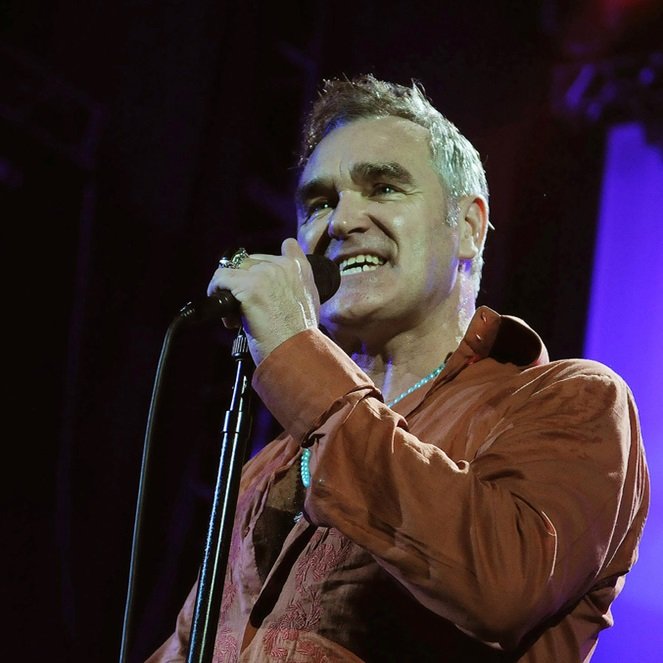Morrissey, born Steven Patrick Morrissey on 22 May 1959 in Manchester, England, is an enigmatic figure in the world of music, whose influence extends far beyond the confines of British alternative rock. As the lead singer of The Smiths in the 1980s, Morrissey became the voice of a disenchanted generation, and he has continued to captivate audiences with his solo career, spanning over three decades.
Morrissey’s early life in Manchester, steeped in a culture rich with musical and literary tradition, profoundly shaped his artistic sensibility.
The stark, post-industrial landscape of his hometown, combined with his extensive reading—ranging from Oscar Wilde to kitchen sink realism—infused his songwriting with a blend of romanticism and gritty realism. These elements became the hallmark of The Smiths’ music, which Morrissey formed with guitarist Johnny Marr, bassist Andy Rourke, and drummer Mike Joyce in 1982. The band’s innovative sound, characterized by Marr’s jangling guitar and Morrissey’s brooding vocals, struck a chord with young people feeling alienated by the prevailing socioeconomic policies of the era.
The Smiths released a series of critically acclaimed albums, such as The Queen Is Dead and Meat Is Murder, which were marked by Morrissey’s lyrical explorations of existential angst, social alienation, and a disdain for the monarchy and political establishment. These themes resonated deeply, making Morrissey a figurehead for those who felt marginalized and voiceless.
After The Smiths disbanded in 1987, Morrissey launched a solo career that would not only sustain but also expand his influence. His debut album, Viva Hate, was followed by a succession of successful records, including Your Arsenal and Vauxhall and I. Each album showcased his ability to evolve musically while staying true to the themes of his lyricism—introspection, human frailty, and a pervasive sense of melancholy.
Morrissey’s solo work has often been marked by a more polished and diverse musical style, incorporating rockabilly, glam rock, and even opera influences. Despite these changes, his music has continued to be a beacon for those who identify with its introspective quality. Songs like “Everyday Is Like Sunday” and “Suedehead” exemplify his unique ability to combine morose lyrics with catchy, uplifting melodies, creating paradoxical yet profoundly impactful music.
Beyond his musical output, Morrissey’s public persona is a significant aspect of his legacy. Known for his wit and penchant for controversy, his interviews are often as compelling as his lyrics. A staunch advocate for animal rights and a vocal critic of the meat industry, Morrissey’s activism has spurred both admiration and debate. His forthrightness on various social and political issues reflects his commitment to the principles that have guided his artistic journey.
Morrissey’s influence is also notable in the literary world. His autobiography, Autobiography, published in 2013, topped the bestseller lists with its eloquent and eccentric narrative style. The book provides insights into his complex personality and artistic vision, offering an unfiltered look into the life of one of music’s most intriguing figures.
For fans and followers, Morrissey is more than just a musician or a lyricist; he is a cultural icon whose work has shaped and mirrored the complexities of modern life. His enduring appeal lies in his ability to articulate the human condition with a poetic precision and emotional depth that few can match. As he continues to tour and produce new music, Morrissey remains a vital figure in the cultural landscape, cherished for his contributions to music, literature, and the broader discourse on social issues.


